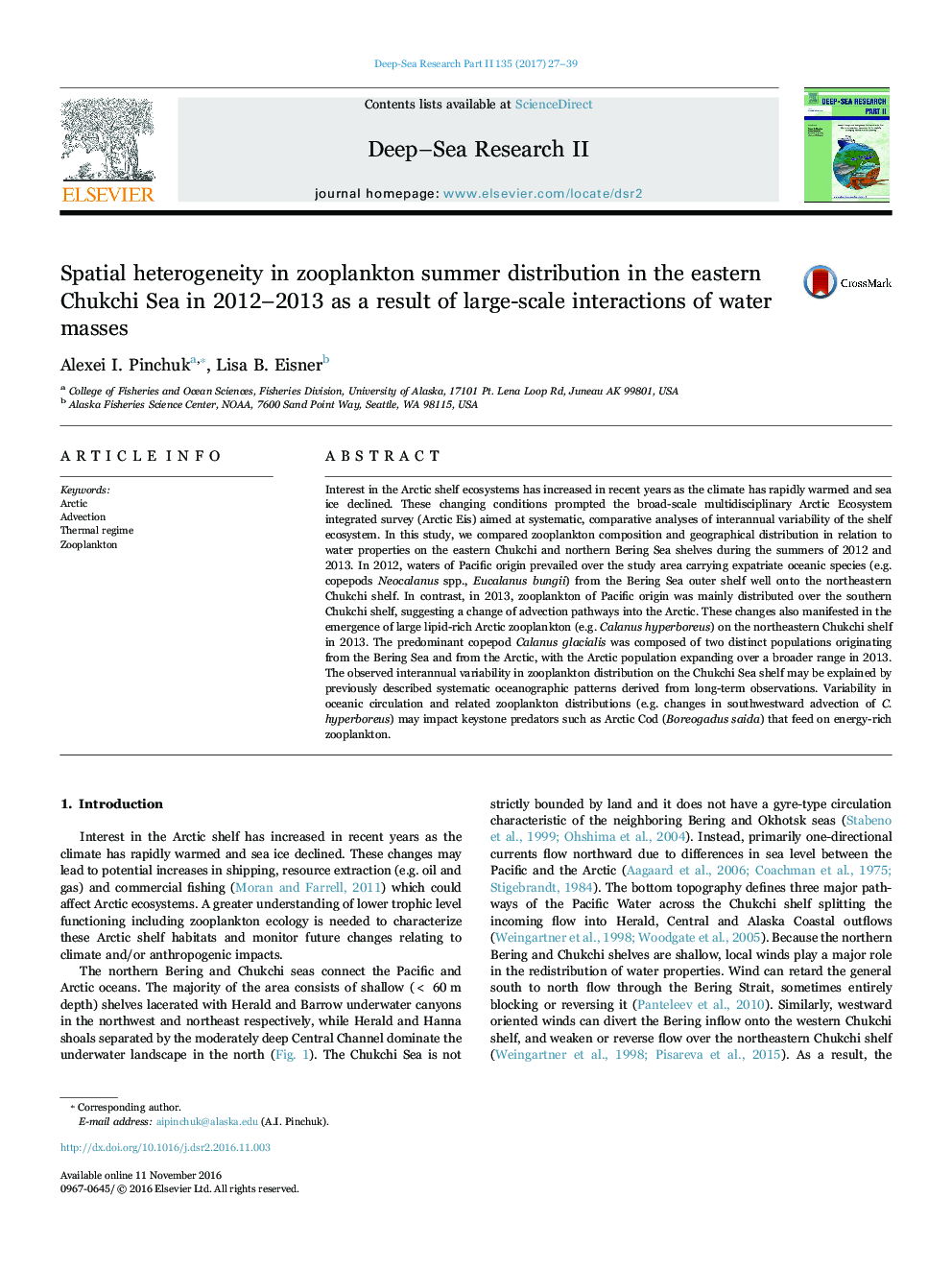| کد مقاله | کد نشریه | سال انتشار | مقاله انگلیسی | نسخه تمام متن |
|---|---|---|---|---|
| 5764901 | 1626407 | 2017 | 13 صفحه PDF | دانلود رایگان |
عنوان انگلیسی مقاله ISI
Spatial heterogeneity in zooplankton summer distribution in the eastern Chukchi Sea in 2012-2013 as a result of large-scale interactions of water masses
ترجمه فارسی عنوان
ناهمگونی فضایی در توزیع تابستان زئوپلانکتون در دریای چوکچی شرقی در سالهای 2012-2013 به عنوان یک نتیجه از تعاملات گسترده در توده های آب
دانلود مقاله + سفارش ترجمه
دانلود مقاله ISI انگلیسی
رایگان برای ایرانیان
کلمات کلیدی
قطب شمال، پیشگیری رژیم حرارتی، زئوپلانکتون،
موضوعات مرتبط
مهندسی و علوم پایه
علوم زمین و سیارات
زمین شناسی
چکیده انگلیسی
Interest in the Arctic shelf ecosystems has increased in recent years as the climate has rapidly warmed and sea ice declined. These changing conditions prompted the broad-scale multidisciplinary Arctic Ecosystem integrated survey (Arctic Eis) aimed at systematic, comparative analyses of interannual variability of the shelf ecosystem. In this study, we compared zooplankton composition and geographical distribution in relation to water properties on the eastern Chukchi and northern Bering Sea shelves during the summers of 2012 and 2013. In 2012, waters of Pacific origin prevailed over the study area carrying expatriate oceanic species (e.g. copepods Neocalanus spp., Eucalanus bungii) from the Bering Sea outer shelf well onto the northeastern Chukchi shelf. In contrast, in 2013, zooplankton of Pacific origin was mainly distributed over the southern Chukchi shelf, suggesting a change of advection pathways into the Arctic. These changes also manifested in the emergence of large lipid-rich Arctic zooplankton (e.g. Calanus hyperboreus) on the northeastern Chukchi shelf in 2013. The predominant copepod Calanus glacialis was composed of two distinct populations originating from the Bering Sea and from the Arctic, with the Arctic population expanding over a broader range in 2013. The observed interannual variability in zooplankton distribution on the Chukchi Sea shelf may be explained by previously described systematic oceanographic patterns derived from long-term observations. Variability in oceanic circulation and related zooplankton distributions (e.g. changes in southwestward advection of C. hyperboreus) may impact keystone predators such as Arctic Cod (Boreogadus saida) that feed on energy-rich zooplankton.
ناشر
Database: Elsevier - ScienceDirect (ساینس دایرکت)
Journal: Deep Sea Research Part II: Topical Studies in Oceanography - Volume 135, January 2017, Pages 27-39
Journal: Deep Sea Research Part II: Topical Studies in Oceanography - Volume 135, January 2017, Pages 27-39
نویسندگان
Alexei I. Pinchuk, Lisa B. Eisner,
